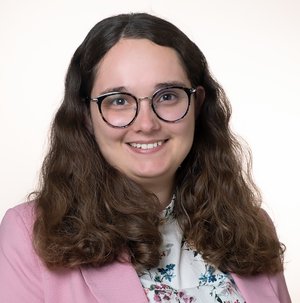
Wietske Bastiaansen
Postdoctoral Researcher, Erasmus MC
Interests
- Prenatal Image Analysis
- First Trimester Ultrasound
- Image Registration
- Embryonic and Fetal Brain Development
- Machine learning
Education
-
MSc in Applied Mathematics, 2018
University of Twente
-
PhD thesis: Modeling Human Embryonic Brain Development, 2024
Erasmus Medical Center
Research lines
Biography
Research
Wietske started in March 2019 her PhD project about the development of spatiotemporal brain atlas of the developing embryonic brain based on ultrasound imaging using deep learning. Her project is a collaboration between the Periconception Epidemiology group of the department of Obstetrics and Gynaecology and the Biomedical Imaging Group Rotterdam (BIGR) of the department of Radiology and Nuclear Medicine. After her PhD defense on 02-07-2024, she continued as a postdoctoral researcher.
During her PhD project, Wietske developed different deep learning based methods to automatically monitor growth and development of the embryonic and fetal brain. All methods make use of 3D first trimester ultrasound. She proposed a framework to simultaneously segment and spatially the embryo, using a set of references that were manually segmented and aligned. These two tasks form the basis for automatic monitoring of growth and development: placing the embryo in a standard orientation enables derivation of the standard planes, and the segmentation of the embryo provides the embryonic volume. The advantage of the proposed framework is that after alignment, any standard plane and associated biometric measurements can easily be identified. Besides alignment, Wietske focussed on measuring the embryonic volume and embryonic head volume automatically using deep learning. Finally she developed a deep learning approach to create a 4D spatiotemporal atlas of the embryonic brain. This atlas consists of a template per gestational day, and is defined as the mean morphology of the brain. The resulting atlas gives a detailed picture of normal embryonic and fetal brain development and was used to quantitatively assess the influence of a high maternal BMI during early pregnancy. Her PhD thesis can be found here.
During her postdoctoral training, Wietske will focus on modelling embryonic, fetal and placenta development to detect adverse growth and congenital anomalies and get insight into the influence of lifestyle behaviour and maternal and paternal conditions.
Looking for an interesting internship or thesis project? Send me an email!
Background
Wietske obtained both her bachelor and master degree in Applied Mathematics at University of Twente in Enschede. The focus of here master was modelling spatio-temporal changes described by partial differential equations and image analysis. She did an internship at TNO’s Intelligent Imaging group on camera-independent real-time action recognition. The result can be found here. In her master thesis, she focused on joint dynamic MRI reconstruction and motion estimation, where her main contribution was the derivation of an non-convex optimization algoritm. Besides studying, Wietske was very involved in the student community. She dedicated one full year to be in the board of W.S.G. Abacus, study association for applied mathematics at the University of Twente. She was a teaching assistant for various programs, organized and chaired evaluation meetings of the bachelor program Applied Mathematics, and finally she was part of the general promotion team for the University of Twente. In her free time Wietske likes to run, cook and drink an drink occasionally some (craft) beer.